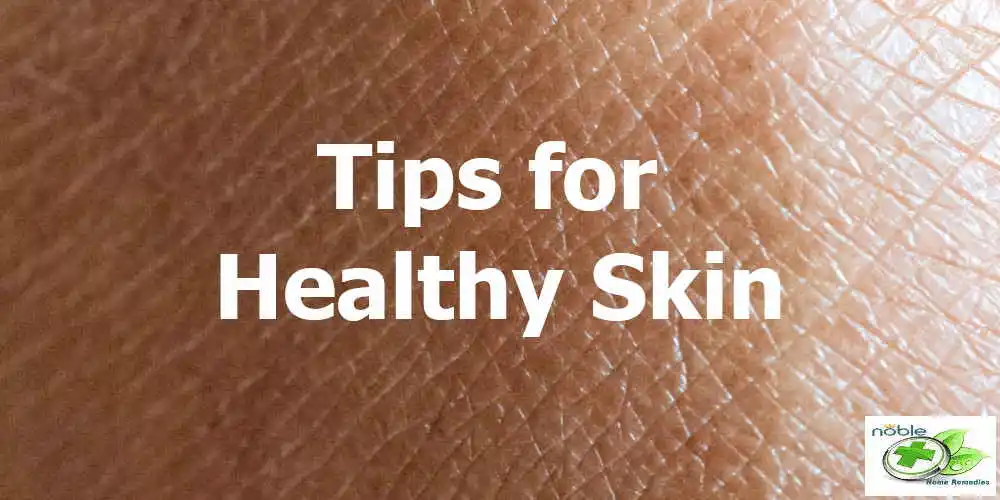How to Use Jojoba Oil for Glowing Skin: 9 Steps for Face and Body
To achieve glowing skin, one often overlooks the power of natural solutions. Among these, Jojoba Oil stands out compared to other oils as a remarkable remedy. Extracted from the seeds of the jojoba plant, this oil has been used for centuries for its extensive skincare benefits.

The secret to its effectiveness lies in its composition. Jojoba oil closely resembles sebum, a waxy substance produced by our skin glands, thus it acts as a natural skin conditioner. But the benefits don’t stop there. It’s packed with essential vitamins such as Vitamin E and B, antioxidants, and minerals like chromium, copper, and zinc, which nourish and protect the skin.
This blog post will guide you on how to use Jojoba Oil for your skin, helping you unlock its potential in your skincare routine. So, if you’re ready to overcome dull skin and embrace a natural glow, read on!
Jojoba Oil and Its Benefits to Skin
Jojoba oil is a natural wonder with a multitude of benefits for the skin. Let us quickly capture jojoba oil benefits for the skin before learning how to use it for the skin.
- Nature’s medicinal portion for Skin: Jojoba Oil is remarkably similar in composition to the natural oils produced by your skin. This resemblance is where its magic begins. When applied to your skin, Jojoba Oil harmoniously integrates with your body’s own oils, making it suitable for all skin types. This natural compatibility ensures that your skin receives the care it deserves without any harsh, synthetic interference.
- Moisturizing Marvel: One of Jojoba Oil’s most notable features is its exceptional moisturizing ability. Dry, flaky skin is no match for this natural emollient. It penetrates deep into the skin, creating a protective barrier that prevents moisture loss, leaving your skin feeling supple, smooth, and wonderfully hydrated.
- Balancing Act: Jojoba Oil also plays a key role in balancing your skin’s oil production. Whether you’re dealing with overly oily or excessively dry skin, this miraculous oil adapts to your skin’s unique needs. For those with oily skin, it signals to your skin that it doesn’t need to produce as much oil, helping to reduce shine and the risk of breakouts. Simultaneously, it won’t leave dry skin types high and dry, thanks to its hydrating prowess.
- Radiant Complexion: Perhaps the most desired outcome in your skincare is a radiant complexion, and Jojoba Oil excels in this here as well. It contains essential vitamins and minerals that nourish and rejuvenate your skin. These nutrients work in harmony to promote a healthy, youthful glow, reducing the appearance of fine lines and wrinkles. With regular use, you’ll discover that your skin becomes smoother, firmer, and more radiant than ever before.
Jojoba Oil is not just another skincare trend; it’s a timeless, natural solution that caters to the diverse needs of your skin, offering moisturization, oil balance, and the promise of a radiant complexion. It’s nature’s gift to your skin, and when used correctly, it can be the key to unlocking your skin’s full potential.
How to Choose Quality Jojoba Oil

Selecting the right jojoba oil is a pivotal step to achieving glowing, healthy skin. With an abundance of options on the market, it’s essential to know what to look for to ensure you’re getting a high-quality, authentic product. Let’s explore how to make the best choice for your skin.
- Purity and Authenticity: Purity is of utmost importance when it comes to jojoba oil. Look for oils that are 100% pure. Authenticity matters because some products may be diluted with other oils or synthetic ingredients, diminishing their effectiveness. You want the real deal to reap the full benefits for your skin.
- Cold-Pressed and Unrefined: Cold-pressed, unrefined jojoba oil is the gold standard. This extraction method ensures that the oil maintains its natural properties and doesn’t undergo chemical processes that could alter its composition. This results in a more potent, skin-friendly product.
- Organic Certification: Opt for jojoba oil that carries an organic certification. The best jojoba oils are certified organic by the USDA. This means that they are produced without synthetic pesticides or herbicides, ensuring a purer product for your skin.
- Transparency in Labeling: Pay close attention to product labels. Reputable jojoba oil should have a straightforward ingredient list, ideally consisting of a single ingredient: “100% Pure Jojoba Oil” or similar. Beware of products with a long list of additives, as they might not be as pure as advertised.
- Glass Packaging: Quality jojoba oil is often packaged in dark glass bottles. This is because glass is non-reactive and helps protect the oil from exposure to light, air, and heat, all of which can degrade its quality over time. Avoid oils in clear or plastic containers, as they may be more susceptible to contamination.
- Smell and Color: Pure jojoba oil typically has a mild, nutty aroma and a golden or pale yellow color. Be cautious if the oil smells strongly or has a distinct color, as this could indicate impurities or additives.
- Reviews and Recommendations: Before making a purchase, read product reviews and seek recommendations from trusted sources, such as beauty experts or skincare enthusiasts. They can provide insights into the quality and effectiveness of specific brands.
Choosing high-quality jojoba oil is an investment in the health and radiance of your skin. By prioritizing purity, authenticity, and the factors mentioned above, you ensure that you’re providing your skin with the best possible care.
Preparing Your Skin
First, need to address the crucial step that is preparing your skin. This step ensures that your skin is ready to absorb all the goodness jojoba oil has to offer. Here’s why it’s essential and how to do it right.
Why Cleansing is Key: Cleansing your face before applying jojoba oil is fundamental for a few reasons. Firstly, it rids your skin of impurities like dirt, sweat, and makeup, creating a clean canvas for the oil to penetrate. Secondly, it helps to unclog your pores, preventing breakouts and congestion. Lastly, cleansing your skin eliminates the barriers that might hinder jojoba oil from doing its job effectively.
The Right Tools and Products: To get started, you’ll need a few simple tools and products:
Gentle Cleanser: Opt for a mild, sulfate-free cleanser that suits your skin type. Harsh cleansers can strip your skin of its natural oils, which is the opposite of what you want to achieve.
Warm Water: Use lukewarm water to wash your face. Hot water can be too harsh and dry for your skin.
Clean Towel: Have a clean, soft towel on hand to pat your face dry. Avoid harsh rubbing, as it can irritate your skin.
Cleansing Process: Start by wetting your face with lukewarm water. This helps to open up your pores and make cleansing more effective.
- Apply a small amount of your chosen gentle cleanser to your fingertips. Gently massage it into your skin using circular motions. Be sure to cover your entire face and neck.
- Rinse your face thoroughly with lukewarm water, making sure to remove all traces of the cleanser. Incomplete rinsing can lead to residue on your skin, which may affect the absorption of jojoba oil.
- Pat your face dry with a clean towel. Avoid any rough or abrasive actions; instead, gently blot your skin to avoid unnecessary irritation.
Once your skin is clean and fresh, you’re ready to apply jojoba oil.
How to Use Jojoba Oil for Skin

Now you know how to clean and prepare your skin, it’s time to learn how to use Jojoba Oil for glowing skin. Let’s walk through the step-by-step process to ensure you get the most out of this natural wonder.
Jojoba Oil Facial Application
- Start with a clean face: Follow the cleansing routine outlined earlier to ensure your face is free from impurities.
- Dispense a small amount of Jojoba Oil: Usually, a few drops will suffice. Warm it between your palms by rubbing your hands together. You can use jojoba oil alone or mix it with your favorite moisturizer or serum.
- Gently apply the oil: Using your fingertips, lightly pat the oil onto your face, starting from the center and moving outward. Be gentle; there’s no need for excessive rubbing.
- Focus on areas of concern: Pay extra attention to areas that may be drier or have specific skin issues. Dab a little extra Jojoba Oil on these spots.
- Allow it to absorb: Give the oil a few minutes to fully absorb into your skin. It’s best to apply it after cleansing and before any other skincare products in your routine.
Jojoba Oil Body Application
- Apply after a shower or bath: For your body, it’s ideal to apply Jojoba Oil when your skin is slightly damp, such as after a shower or bath. This helps lock in moisture.
- Take a generous amount of Jojoba Oil: Depending on the area you want to cover, take an appropriate quantity and warm it between your palms.
- Massage it into your skin: Use gentle, upward motions to massage the oil into your skin. Concentrate on areas prone to dryness, like elbows, knees, and heels.
- Allow time for absorption: Just like with your face, give your body some time to absorb the oil before dressing.
Incorporating Jojoba Oil into Your Skincare Routine
Jojoba Oil is incredibly versatile and can be used in various ways in your skincare routine:
- Standalone Moisturizer: You can use Jojoba Oil as your primary moisturizer. Apply it after cleansing and toning but before any sunscreen or makeup.
- Enhance Your Products: Mix a drop or two of Jojoba Oil with your existing moisturizer, serum, or foundation for an extra boost of hydration.
- Makeup Removal: Jojoba Oil is effective for removing makeup gently. Apply a small amount to a cotton pad and use it to wipe away makeup.
- Hair and Scalp: Don’t forget your hair! Jojoba Oil can be used as a hair conditioner and a treatment for the scalp to help with dandruff or dryness.
- Face Mask: To use jojoba oil as a mask, you can mix it with honey, yogurt, or clay for extra nourishment and cleansing.
Looking for some fantastic DIY recipes that feature Jojoba Oil? Look no further! We’ve got you covered with our top picks.
Tips and Precautions

Here are some tips and precautions to consider when using jojoba oil:
- Always do a patch test before using Jojoba Oil on your face or body, especially if you have sensitive skin.
- If you have a nut allergy, be aware that Jojoba Oil is derived from the seeds of the Jojoba plant, which may not be suitable for you.
- Store your Jojoba Oil in a cool, dark place to preserve its quality.
- While Jojoba Oil is generally safe for most skin types, if you experience any adverse reactions, discontinue use and consult a dermatologist.
- Jojoba oil can be dangerous if ingested by mouth. Jojoba oil contains a chemical called erucic acid, which can cause serious side effects such as heart damage, diarrhea, stomach pain, restlessness, and dry eyes. Therefore, you should never swallow jojoba oil or use it in cooking or baking. You should also keep it away from children and pets who may accidentally ingest it.
Consulting a Dermatologist
If you have concerns about using Jojoba Oil or if you experience persistent adverse reactions, it’s wise to consult a dermatologist.
These professionals are trained to assess your skin’s specific needs and can provide guidance on the best skincare practices for your individual situation.
Remember, everyone’s skin is unique, and what works wonders for one person may not be suitable for another. The key is to be attentive to your skin’s responses and prioritize its health and well-being.
Takeaway
In this article, we have learned how to use Jojoba Oil for glowing skin. We have seen the benefits of this natural oil, such as moisturizing, balancing, anti-inflammatory, and anti-aging properties.
We encourage you to take insights from this article and put them into practice. Jojoba Oil has the potential to revolutionize your skincare routine, providing you with the glowing, healthy skin you’ve always desired.
It’s a natural solution, backed by centuries of wisdom, and ready to work its magic on your skin. Why not give it a try and see the results for yourself? You might be surprised by how much Jojoba Oil can improve your skin’s appearance and feel.
Source:
Noble Home Remedies adheres to rigorous sourcing standards, drawing information from peer-reviewed studies, reputable academic research institutions, and esteemed medical journals and associations. We prioritize using high-quality, trustworthy sources to maintain the accuracy and integrity of our content. You can learn more about how we ensure our content is accurate and current by reading our editorial policy.
- Jojoba Oil for Face: 13 Benefits for Acne, Wrinkles, and More (healthline.com)
- Jojoba Oil: Uses, Benefits, And Side Effects
https://www.forbes.com/health/body/jojoba-oil/ - Benefits of Jojoba Oil for Acne and Other Skin Problems
https://spacecoast.edu/blog/benefits-of-jojoba-oil-for-acne-and-other-skin-problems.html
Trust in your purchase:
Every product featured on our site has been carefully researched and selected based on quality, customer ratings, and positive reviews to ensure you receive excellent value for your money.
Please note:
This post contains affiliate links. If you make a purchase through these links, we may earn a small commission at no additional cost to you. This helps support our site and allows us to continue bringing you valuable content. Thank you!
Thank you for your precious time spent with NobleHomeRemedies.
You may also like:
Pimple Spot Treatment
Best Pimple Spot Treatment: 10 Top Rated Products Are pesky pimples and unexpected breakouts making…
Miracle Scalp Treatment for Thinning Hair
Miracle Scalp Treatment for Thinning Hair: Proven Tips All my dear sweet respectable readers, this…
BMI Calculator for BBL
BMI Calculator for BBL: The Ultimate Precise Measurements Are you one of the many people…
Tips for Healthy Skin
10 Tips for Healthy Skin – All Natural and Easy If you want to maintain…
How Long Does It Take for Pimples to Go Away
How Long Does It Take for Pimples to Go Away: Ultimate Guide Pimples, oh pimples!…
Jamaican Black Castor Oil for Eyebrows
Jamaican Black Castor Oil for Eyebrows: 8 Top Tips JBCO Jamaican black castor oil (JBCO)…






